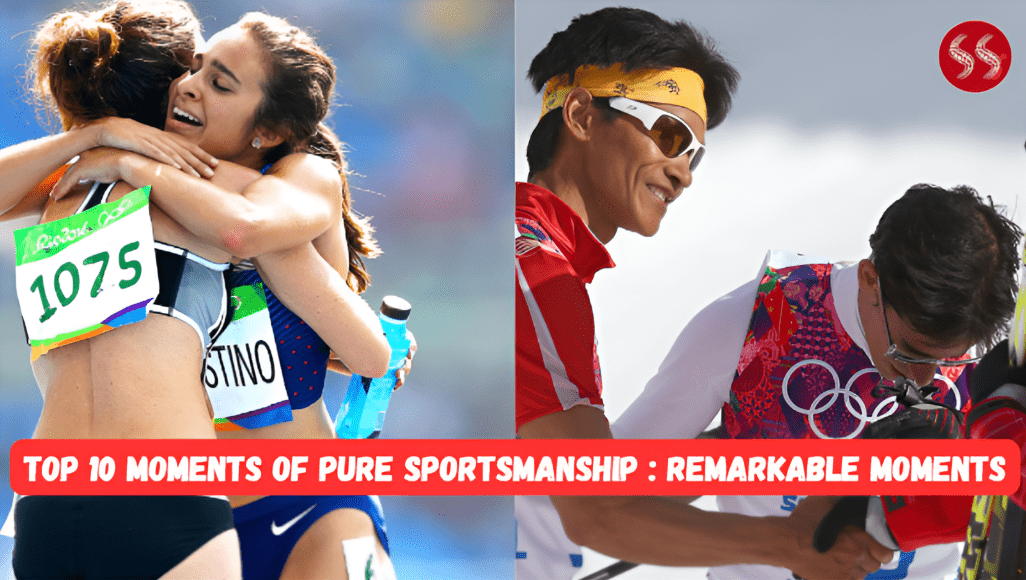A perfect performance isn’t always about crossing the finish line first or scoring the winning goal. Sometimes, the true measure of an athlete, a team, or a moment in sport lies in the display of compassion, integrity, and selflessness. These are the instances where the fierce desire to win takes a backseat to human decency, inspiring millions and reminding us of the higher values that sports can embody. These remarkable displays of character are what define the Top 10 Moments of Pure Sportsmanship.
In a world increasingly focused on results and records, these acts shine even brighter, cutting through the competitive noise to reveal the true spirit of the game. They remind us that empathy, respect, and fair play are just as vital, if not more so, than victory itself. From helping a fallen rival to conceding a crucial point, these Top 10 Moments of Pure Sportsmanship transcend individual achievement, becoming legendary tales shared across generations.
Join us as we celebrate the Top 10 Moments of Pure Sportsmanship that have left an indelible mark on the hearts of fans worldwide. These are the instances where athletes proved that the pursuit of excellence can coexist with profound humanity, creating remarkable moments that are truly unforgettable.
Top 10 Moments of Pure Sportsmanship:
10. Dario Cologna Waits for Roberto Carcelen (2014 Sochi Winter Olympics)
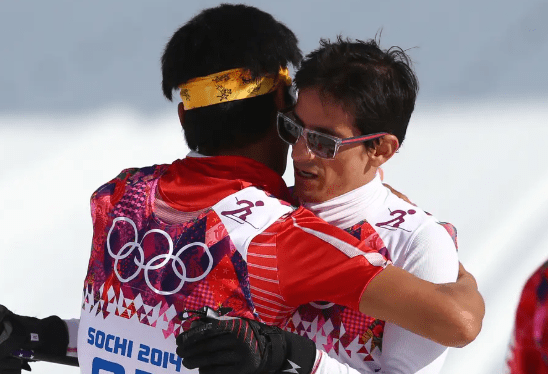
In a poignant display of empathy that solidified its place among the Top 10 Moments of Pure Sportsmanship, Swiss cross-country skiing champion Dario Cologna demonstrated that winning isn’t everything. Cologna had just secured his second Olympic gold medal in the men’s 15km classical event at the 2014 Sochi Winter Olympics, a testament to his immense talent and dedication. He was celebrating his victory, basking in the glory, but instead of leaving the finish line, he waited. This act of grace became one of the most talked-about Top 10 Moments of Pure Sportsmanship of the Games.
Cologna waited for almost half an hour for Roberto Carcelen of Peru, the final competitor, to cross the finish line. Carcelen, who had started skiing at 35 and was competing in his second Olympics, had injured his ribs just weeks before the event but chose to compete against his doctor’s advice. He finished in last place, nearly 28 minutes after Cologna.
As Carcelen finally crossed the line, exhausted and emotional, Cologna, still wearing his skis, greeted him with a warm handshake and congratulations. It was a powerful reminder that the Olympic spirit extends beyond medals, emphasizing participation, perseverance, and mutual respect. Cologna’s selfless act of waiting for his fellow competitor, acknowledging his immense effort, enshrined this event as a prime example of the Top 10 Moments of Pure Sportsmanship in Olympic history.
| Key Stat | Cologna waited approximately 28 minutes past his own finish to greet the final competitor. |
9. Paolo Di Canio Catches the Ball (2000 Everton vs. West Ham)
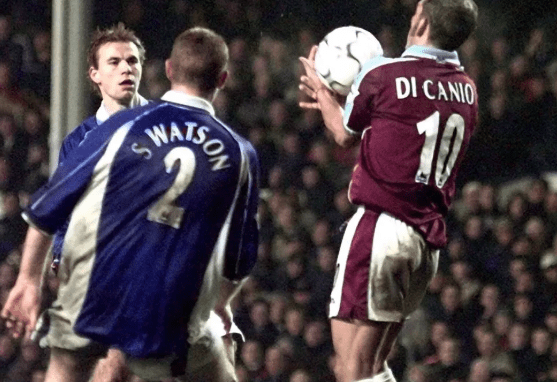
In a moment that transcended the fierce competition of Premier League football, Paolo Di Canio delivered one of the Top 10 Moments of Pure Sportsmanship during a match between West Ham and Everton in December 2000. Known for his fiery temperament and passionate play, Di Canio’s action surprised many but showcased an undeniable act of fair play. It instantly became a classic example of the Top 10 Moments of Pure Sportsmanship in football.
With the score tied at 1-1 in the dying minutes of the game, a cross came into the Everton box. The Everton goalkeeper, Paul Gerrard, had gone down injured outside his area. Di Canio, presented with an open goal opportunity to potentially score the winning goal, instead caught the ball with his hands, effectively stopping play and forfeiting the chance to score. He immediately signaled for the medical staff to attend to the injured Gerrard. The referee, Rob Styles, had not blown his whistle, meaning Di Canio could have easily capitalized.
His decision ensured Gerrard received prompt medical attention, overriding his team’s desperate need for a goal. This remarkable act of compassion, prioritizing an opponent’s well-being over a potential match-winning strike, earned him a standing ovation from both sets of fans and the FIFA Fair Play Award. Di Canio’s unexpected selflessness firmly places this event among the Top 10 Moments of Pure Sportsmanship ever witnessed on the football pitch.
| Key Stat | Di Canio forfeited a potential match-winning goal opportunity to assist an injured opponent. |
8. Ivan Fernández Anaya Guides Abel Mutai (2012 Burlada Cross Country Race)
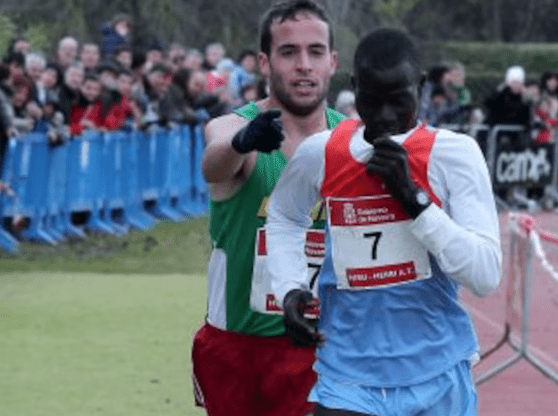
This incident from a local Spanish cross-country race quickly became a global sensation, embodying the spirit of fair play and earning its place among the Top 10 Moments of Pure Sportsmanship. During the 2012 Burlada Cross Country Race in Navarre, Spain, Kenyan runner Abel Mutai, an Olympic steeplechase bronze medalist, was comfortably leading and on course for victory. However, as he approached the finish line, he mistakenly stopped a few meters short, believing he had already crossed it. This confusion presented a unique ethical dilemma and a clear opportunity for his competitor.
Trailing just behind Mutai was Spanish runner Iván Fernández Anaya. Seeing Mutai’s confusion, Anaya could have easily surged past him to claim the win. Instead, in an extraordinary act of integrity, Anaya opted not to overtake. He ran up to Mutai, gently nudged him forward, and gestured towards the actual finish line, effectively guiding his confused opponent to claim the victory that was rightfully his. Anaya finished just behind him, sacrificing his own chance for a win. When asked why he didn’t seize the opportunity,
Anaya simply stated, “He was the rightful winner. He created a gap that I couldn’t have closed if he hadn’t made a mistake.” This powerful demonstration of integrity and respect for the true victor solidifies its position among the Top 10 Moments of Pure Sportsmanship, serving as a reminder that honor can outweigh victory. It remains one of the most powerful examples of Top 10 Moments of Pure Sportsmanship in endurance running.
| Key Stat | Anaya was approximately 20 meters behind Mutai when the Kenyan stopped prematurely. |
7. Jack Nicklaus Concedes the Putt (1969 Ryder Cup)
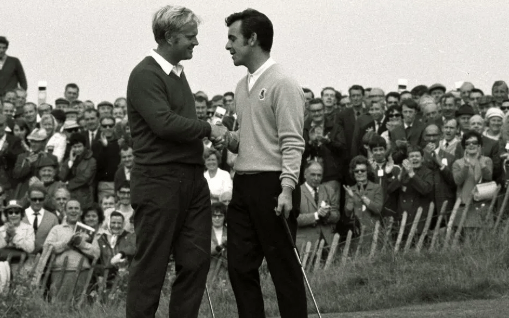
In a moment of unparalleled grace and respect that became legendary in golf, Jack Nicklaus delivered one of the Top 10 Moments of Pure Sportsmanship at the climax of the 1969 Ryder Cup. The Ryder Cup, a fiercely competitive biennial golf competition between teams from the United States and Europe, came down to the final singles match between American icon Jack Nicklaus and Great Britain’s Tony Jacklin. With the overall team scores tied at 15.5-15.5, the entire tournament hinged on this single hole.
As they reached the 18th green, Nicklaus had just holed his putt for par, leaving Jacklin with a three-foot putt to tie the match, which would result in the first-ever tie in Ryder Cup history and a shared cup. Instead of making Jacklin putt it out under immense pressure, Nicklaus famously picked up Jacklin’s ball marker, conceding the putt. “I don’t think you would have missed that, Tony,” Nicklaus reportedly said, “but I didn’t want to give you the chance.” This act of supreme sportsmanship, sacrificing a potential outright American victory for the sake of camaraderie and respect, instantly became iconic.
It showcased a deep understanding of the spirit of competition and mutual admiration between two rivals. The “Concession” cemented its place as one of the Top 10 Moments of Pure Sportsmanship in golf and across all sports, highlighting that integrity and friendship can trump the desire for an uncontested win. This gesture set a benchmark for future Top 10 Moments of Pure Sportsmanship in golf.
| Key Stat | Nicklaus conceded a 3-foot putt that would have decided the 1969 Ryder Cup. |
6. Derek Redmond’s Father Helps Him Finish (1992 Barcelona Olympics)
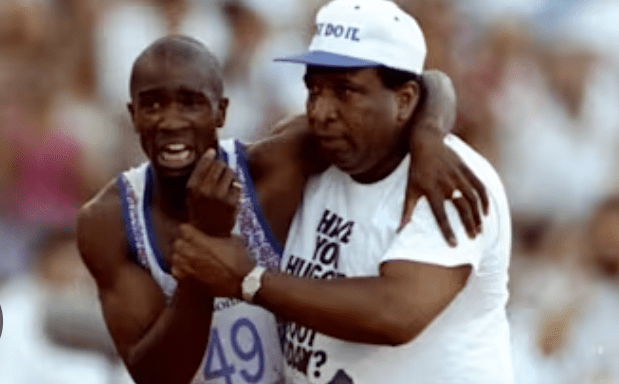
While technically not an act between competitors, the moment Derek Redmond’s father helped him finish his race at the 1992 Barcelona Olympics is a powerful display of human spirit and family sportsmanship, earning its enduring place among the Top 10 Moments of Pure Sportsmanship. British 400-meter runner Derek Redmond was a medal hopeful, but his Olympic dreams were shattered during his semi-final race. Approximately 250 meters into the race, he tore his hamstring and collapsed in agonizing pain on the track.
As medical staff rushed towards him, Redmond, with incredible determination, began to hobble towards the finish line, refusing to give up despite his injury. It was clear he couldn’t do it alone. Suddenly, his father, Jim Redmond, burst from the stands, pushed past security, and joined his son on the track. As a visibly emotional Derek leaned on his father’s shoulder, they continued the painful journey together, arm in arm, towards the finish line. The entire stadium rose in a standing ovation, moved by the raw display of courage and paternal support.
Though Derek was officially disqualified for receiving assistance, the image of father and son crossing the line became one of the most iconic and inspiring moments in Olympic history. This profound act of encouragement and shared perseverance stands as one of the most emotional and enduring of the Top 10 Moments of Pure Sportsmanship, showcasing a father’s unwavering support and an athlete’s refusal to quit. It remains a powerful symbol of determination and the role of support within the Top 10 Moments of Pure Sportsmanship.
| Key Stat | Derek Redmond completed approximately 150 meters of the race with a torn hamstring, assisted by his father. |
See More :
5. Nikki Hamblin and Abbey D’Agostino Help Each Other (2016 Rio Summer Olympics)
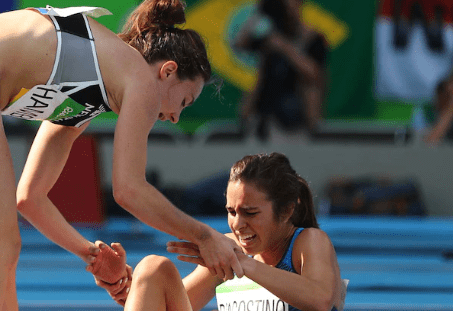
In a truly heartwarming and unforgettable moment that epitomized the Olympic spirit, runners Nikki Hamblin of New Zealand and Abbey D’Agostino of the United States delivered one of the Top 10 Moments of Pure Sportsmanship at the 2016 Rio Summer Olympics. During their 5000m heat, with just over 2000m remaining, Hamblin tripped and fell, unintentionally bringing down D’Agostino, who was running directly behind her. This unexpected collision could have ended both their races.
What happened next was extraordinary. D’Agostino, though visibly in pain, immediately got up and, instead of continuing her race, helped Hamblin to her feet, encouraging her to finish. Moments later, it became clear D’Agostino had sustained a serious injury (a torn ACL) and collapsed again. This time, it was Hamblin who returned the favor, helping D’Agostino up and offering words of encouragement. The two then hobbled the remaining distance together, eventually finishing last and second-to-last, respectively.
Despite not qualifying for the final directly, both were granted places due to the circumstances, and they later received the Pierre de Coubertin medal for their outstanding display of fair play. Their mutual support in the face of adversity, prioritizing another’s well-being over personal competition, solidified this as one of the most moving and defining of the Top 10 Moments of Pure Sportsmanship in modern Olympic history. Their selflessness will forever be remembered as a shining example among the Top 10 Moments of Pure Sportsmanship.
| Key Stat | Both athletes completed the final 2000 meters of their 5000m race together after the collision. |
4. Adam Peaty Gives His Lane to Cody Miller (2016 Rio Summer Olympics)
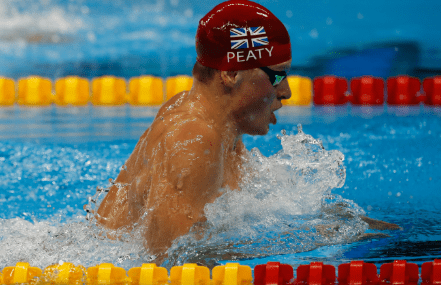
In an understated but profound gesture of respect and sportsmanship, British swimming sensation Adam Peaty provided one of the Top 10 Moments of Pure Sportsmanship at the 2016 Rio Summer Olympics. Peaty, who would go on to win gold and break the world record in the 100m breaststroke, was preparing for his final. Before a major race, swimmers often have specific warm-up routines, and their assigned lane in the practice pool is crucial.
During warm-ups, American swimmer Cody Miller, who was also competing in the final (and would eventually win bronze), found himself without his designated warm-up lane. Seeing Miller’s predicament, Adam Peaty, despite being his direct competitor for the most prestigious prize, immediately offered his own lane to Miller, stepping aside to allow him to complete his crucial pre-race preparations. This act of kindness, just moments before the biggest race of their lives, demonstrated immense class and respect for a fellow athlete’s preparation and performance.
It highlighted a focus on fair competition over gaining a psychological edge through an opponent’s discomfort. Peaty’s selfless act, ensuring his rival had every opportunity to perform at their best, cemented this as one of the quiet but powerful Top 10 Moments of Pure Sportsmanship in Olympic swimming. This act of quiet generosity stands out among the more dramatic instances of Top 10 Moments of Pure Sportsmanship.
| Key Stat | Peaty made the gesture in the final warm-up session before the Olympic 100m Breaststroke final. |
3. Andrew Flintoff Consoles Brett Lee (2005 Ashes Series)
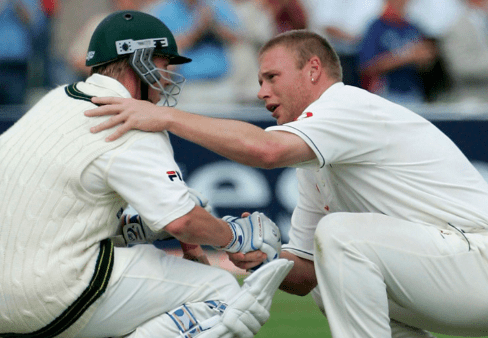
The 2005 Ashes series between England and Australia is widely regarded as one of the greatest cricket series of all time, filled with tension, drama, and incredible performances. Amidst the fierce rivalry, one moment of profound sportsmanship stood out, earning its place among the Top 10 Moments of Pure Sportsmanship. In the second Test match at Edgbaston, a nail-biting encounter came down to the wire, with England clinching a thrilling two-run victory.
As the English players erupted in celebration, overjoyed by their narrow win, all-rounder Andrew “Freddie” Flintoff, instead of joining the immediate celebrations, walked directly over to Australian fast bowler Brett Lee, who was the last man out and visibly heartbroken on his knees. Flintoff put an arm around Lee, offered him words of consolation, and acknowledged the incredible fight he had put up. It was a raw, unfiltered moment of empathy between two fierce competitors who had just pushed each other to their absolute limits.
This spontaneous act of compassion in the face of crushing defeat for one side and euphoria for the other resonated deeply with fans globally. It exemplified the true spirit of cricket and sports in general: respect for your opponent, even in the heat of battle. Flintoff’s iconic gesture cemented this as one of the most memorable and genuine of the Top 10 Moments of Pure Sportsmanship in modern cricket history. It remains a defining image of the Top 10 Moments of Pure Sportsmanship in a high-stakes rivalry.
| Key Stat | Flintoff’s gesture came moments after England secured a 2-run victory in a highly anticipated Ashes Test. |
2. Luz Long Helps Jesse Owens (1936 Berlin Olympics)
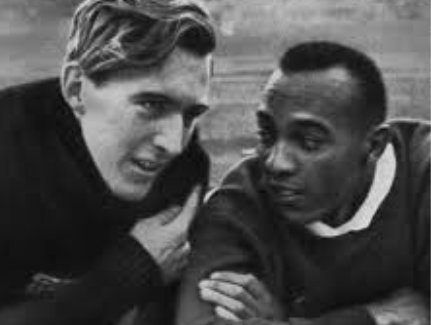
Perhaps one of the most historically significant and politically charged acts of sportsmanship occurred at the 1936 Berlin Olympics, solidifying its place among the Top 10 Moments of Pure Sportsmanship. American track and field legend Jesse Owens, a Black athlete, was competing under the watchful eye of Adolf Hitler’s Nazi regime, which sought to use the Games to promote Aryan supremacy. In the long jump qualification, Owens was struggling, having foot-faulted on his first two attempts, putting him at risk of elimination.
Seeing his main rival’s predicament, German long jumper Luz Long, a white Aryan athlete and the reigning European record holder, walked over to Owens. In a remarkable act of defiance against the political narrative of the time, Long offered Owens advice: place his takeoff mark further back, away from the foul line, to ensure a valid jump even if it meant sacrificing a few inches. Owens took the advice, successfully qualified, and went on to win the gold medal, beating Long who took the silver.
The two embraced and walked off the field arm in arm, a powerful symbol of friendship and human solidarity that directly contradicted Nazi propaganda. Owens later wrote that his friendship with Long was “worth all the gold medals in the world.” This courageous act of fair play and human connection in such a charged atmosphere ensures its lasting legacy as one of the Top 10 Moments of Pure Sportsmanship in Olympic history. Its profound significance continues to be celebrated as one of the ultimate Top 10 Moments of Pure Sportsmanship.
| Key Stat | Long helped Owens avoid fouling out during the long jump qualification, enabling his eventual gold medal. |
1. Eugenio Monti Lends a Bolt (1964 Innsbruck Winter Olympics)
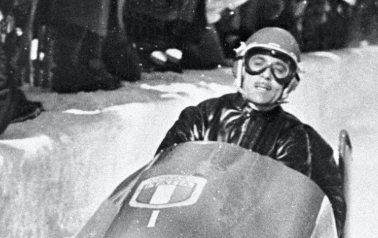
The sheer selflessness and willingness to sacrifice one’s own advantage for a competitor’s fair chance makes Eugenio Monti’s actions at the 1964 Innsbruck Winter Olympics the undisputed top entry among the Top 10 Moments of Pure Sportsmanship. Italian bobsledder Eugenio Monti was a fierce competitor and a legend in his sport. In the two-man bobsleigh event, the British team of Tony Nash and Robin Dixon were strong contenders for gold. However, before their crucial third run, they discovered a vital bolt on their sled was broken, and they had no spare.
Seeing their distress, Monti, who was leading the competition at that point and stood to benefit from his rivals’ misfortune, immediately detached a bolt from his own sled and offered it to the British team. His mechanics helped install it. Nash and Dixon went on to use that bolt to secure Great Britain’s first-ever Olympic bobsleigh gold medal. Monti and his teammate eventually won the bronze. Days later, in the four-man event, Monti again demonstrated his incredible generosity by helping repair the damaged axle of a Canadian sled, enabling them to win gold (while he again took bronze).
For these extraordinary acts, Monti became the first recipient of the Pierre de Coubertin medal, awarded for outstanding sportsmanship. When criticized by the Italian press, Monti famously said, “Nash didn’t win because I gave him the bolt. He won because he had the fastest run.” This unparalleled display of fair play, prioritizing the spirit of competition over personal gain, makes it the quintessential example of the Top 10 Moments of Pure Sportsmanship in sporting history. This defining act sets the standard for all Top 10 Moments of Pure Sportsmanship.
| Key Stat | Monti lent a crucial bolt for the steering mechanism of a rival team’s bobsled. |
FAQs
Q1: What is “sportsmanship” in competitive sports?
A1: Sportsmanship refers to ethical, courteous, and fair behavior during a sporting event. It embodies respect for opponents, officials, and the rules of the game, even in moments of intense competition. The Top 10 Moments of Pure Sportsmanship perfectly illustrate these values.
Q2: Are moments of sportsmanship common in professional sports today?
A2: While elite sports are highly competitive, acts of sportsmanship still occur. They may not always be as widely publicized as dramatic wins, but many athletes continue to display integrity and respect for their competitors, contributing to the ongoing legacy of Top 10 Moments of Pure Sportsmanship.
Q3: How are acts of sportsmanship recognized?
A3: Acts of sportsmanship are often recognized by governing bodies through awards (like the Pierre de Coubertin medal for Olympic athletes or various fair play awards), media attention, and widespread public admiration. Many of the Top 10 Moments of Pure Sportsmanship gain legendary status simply through their powerful human impact.
Read More :
